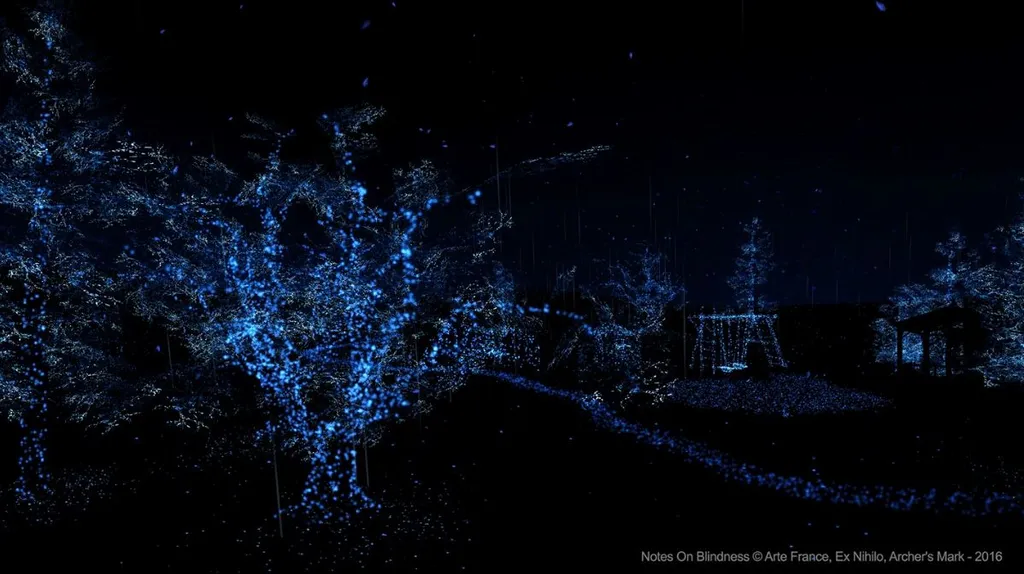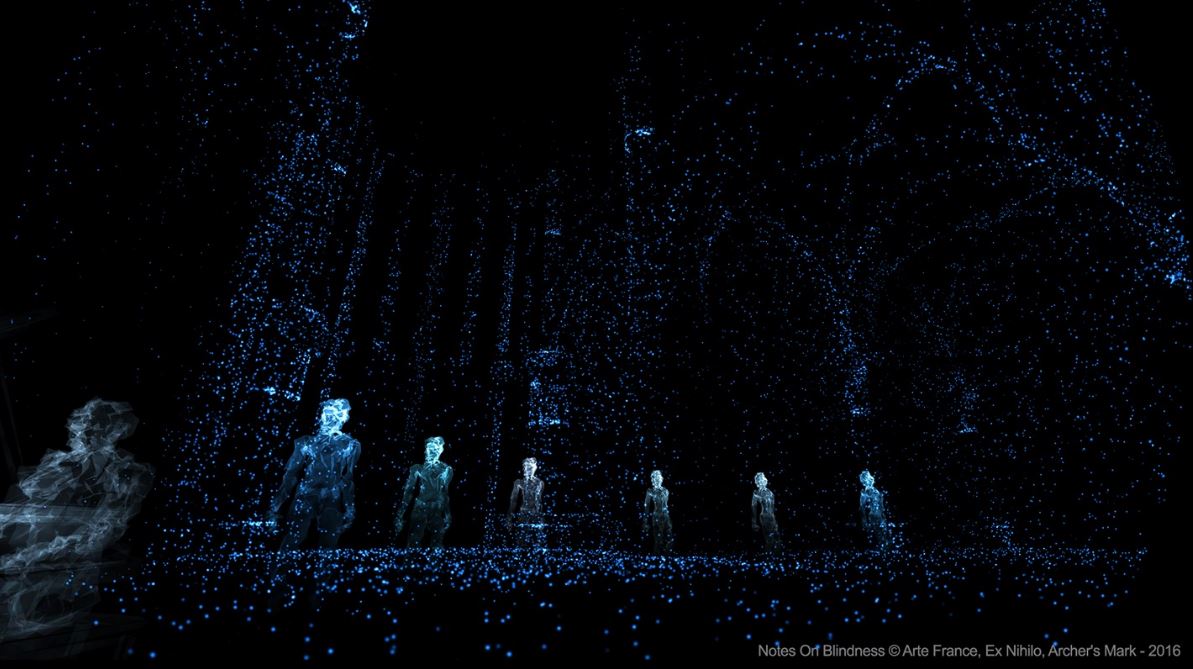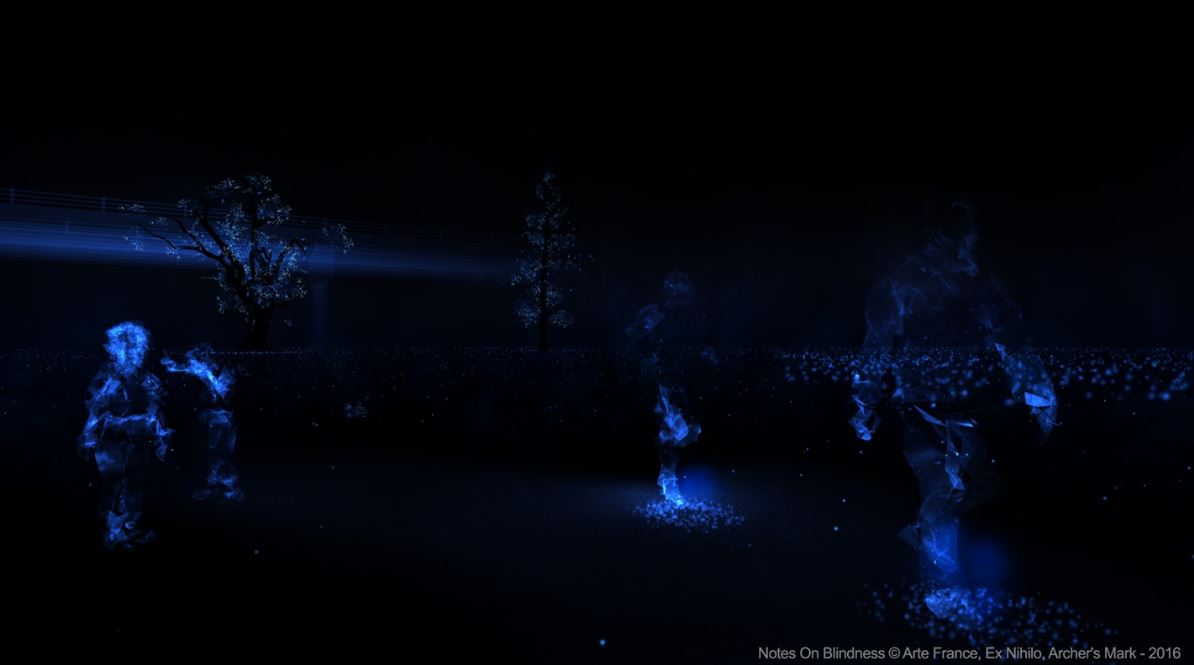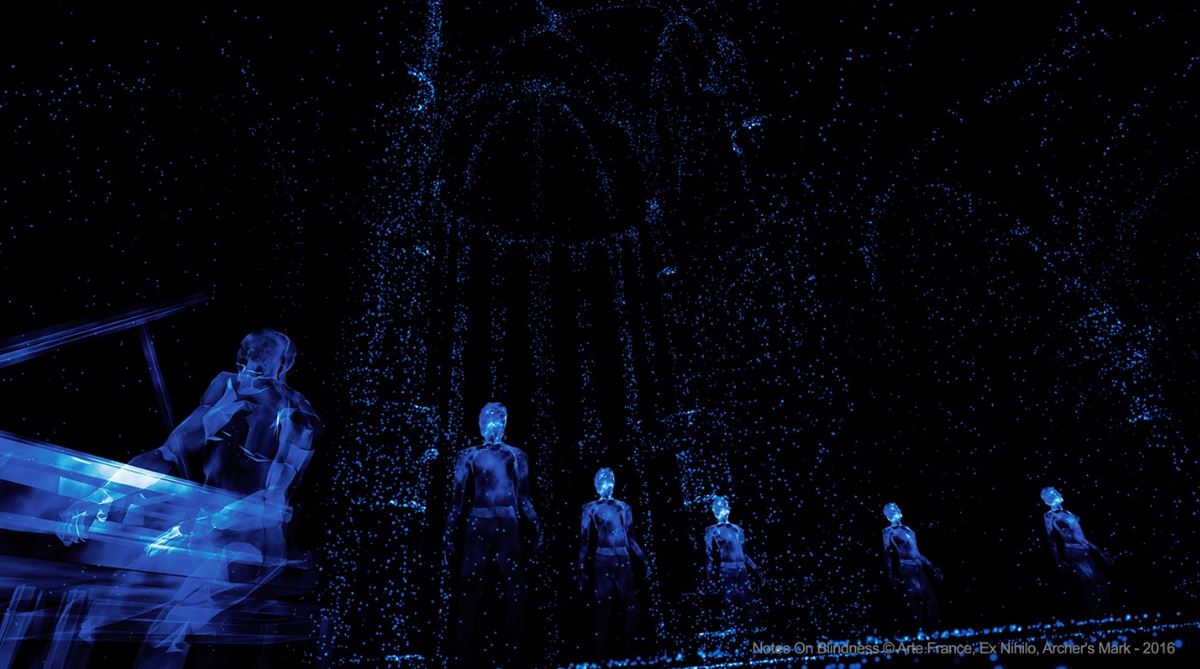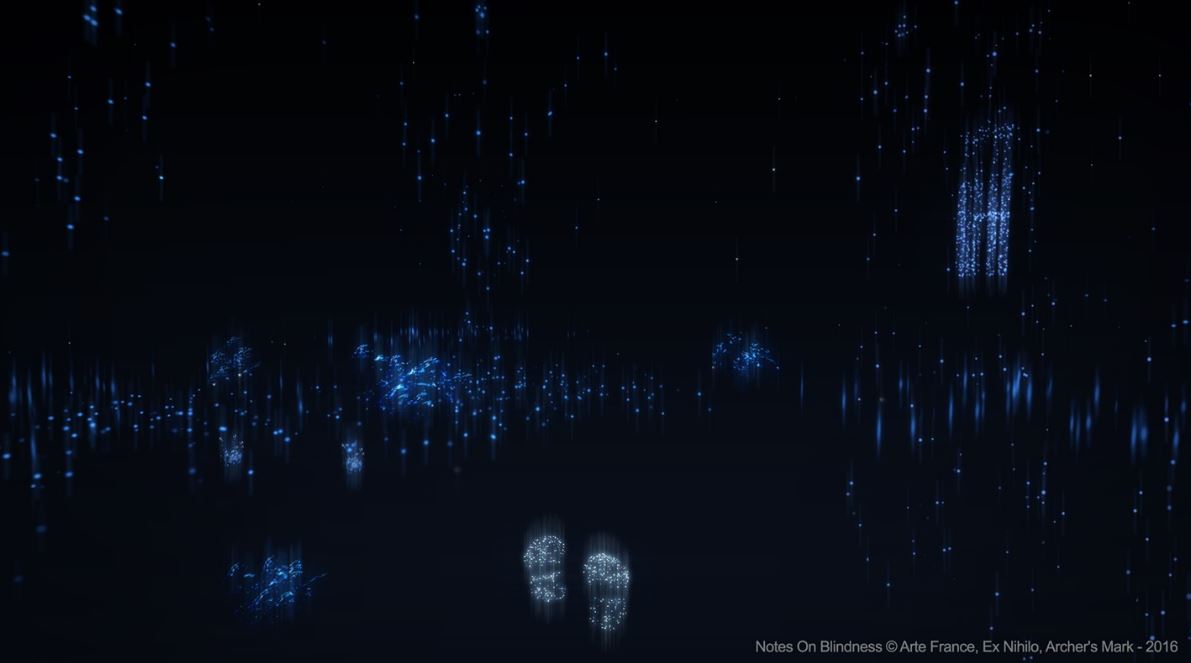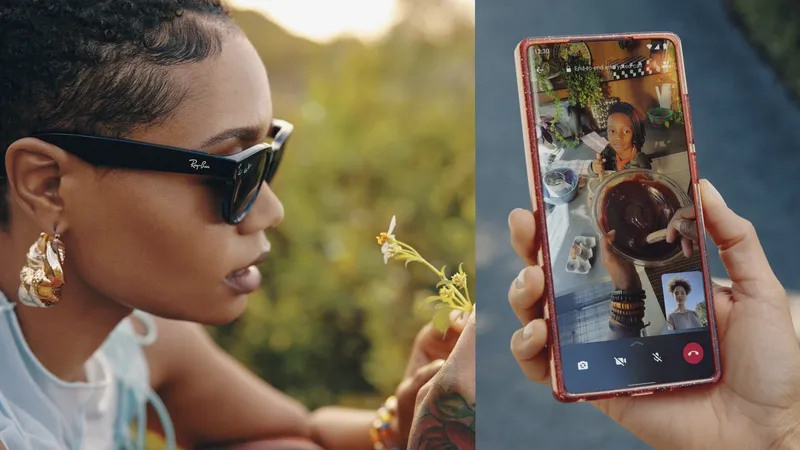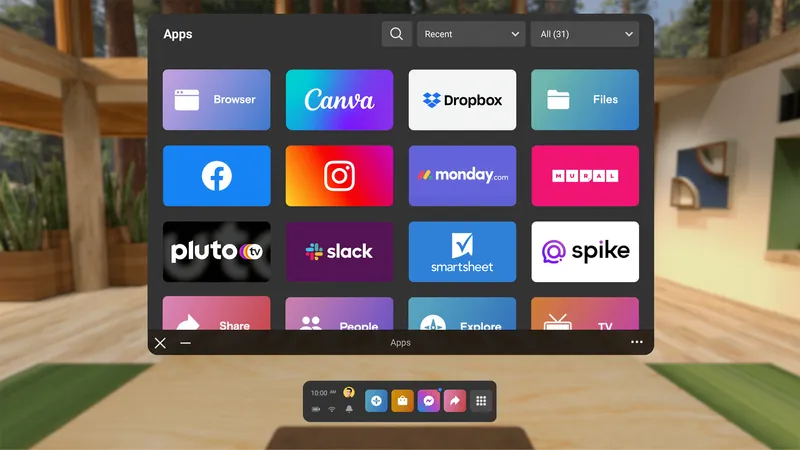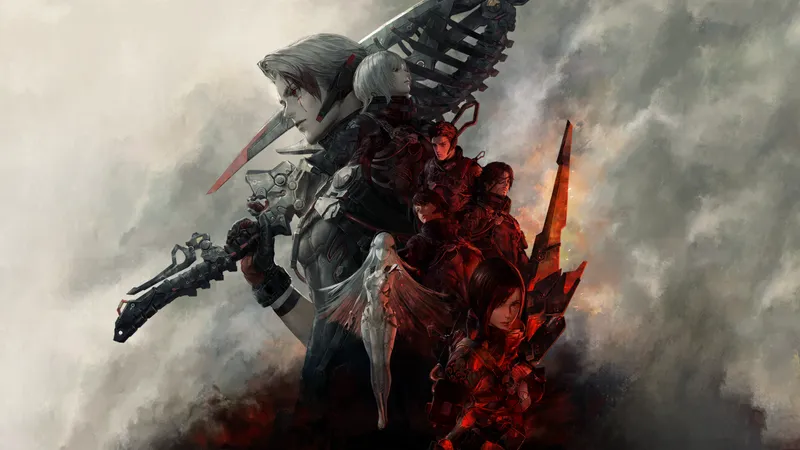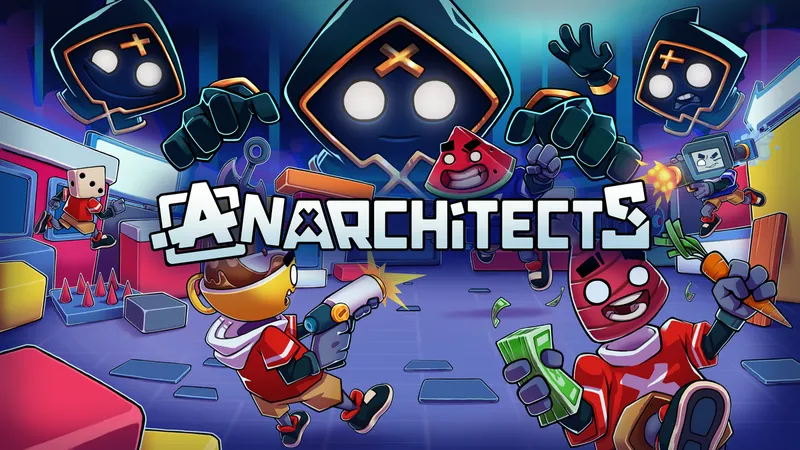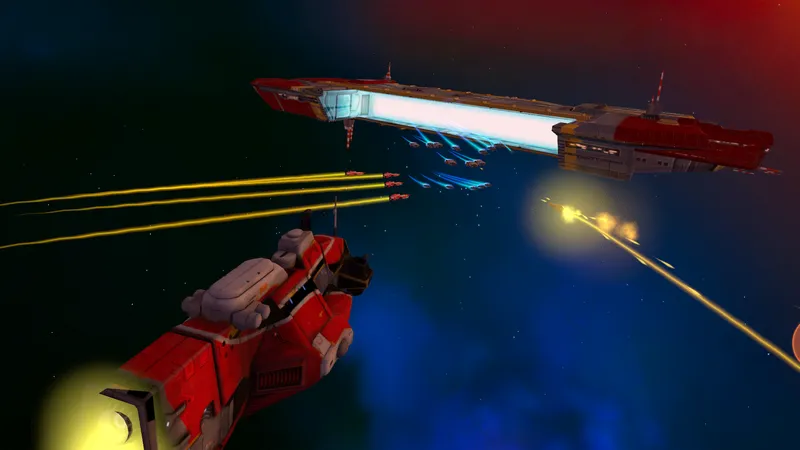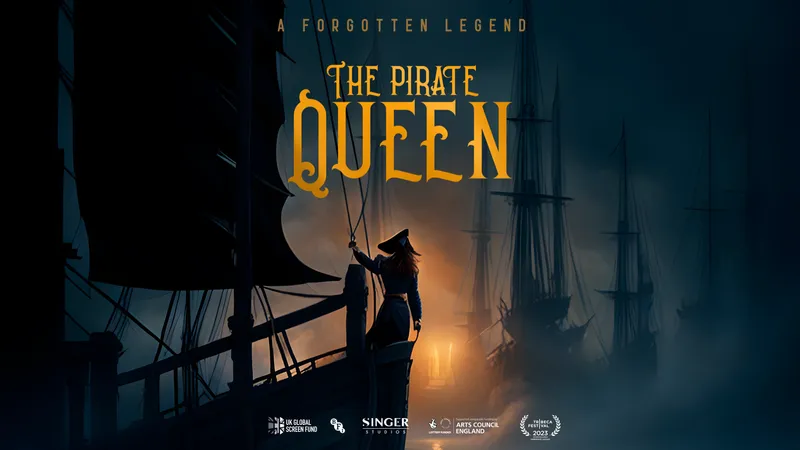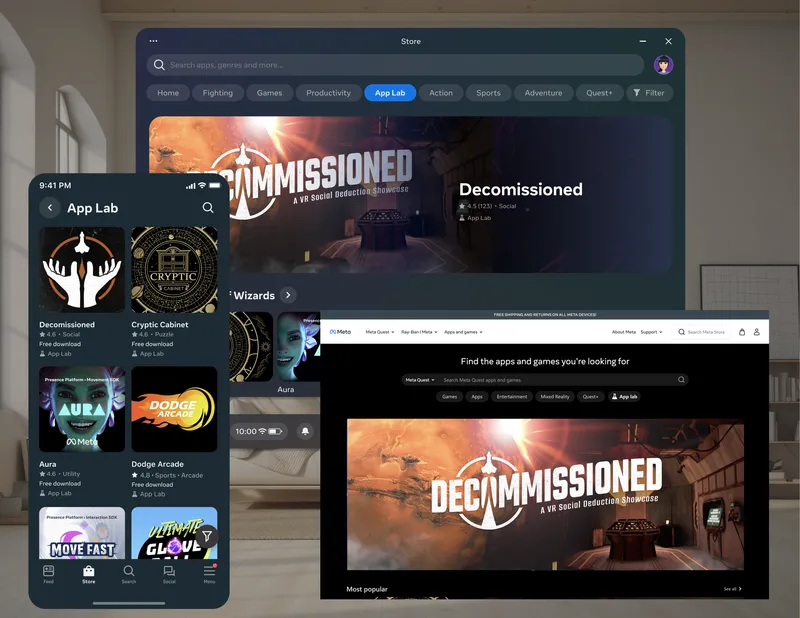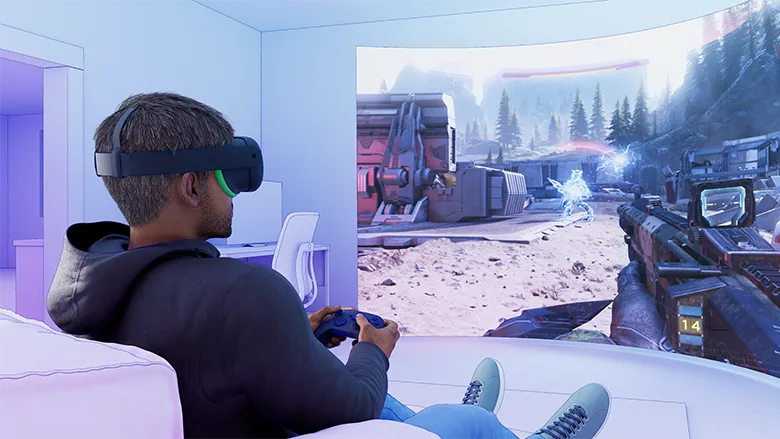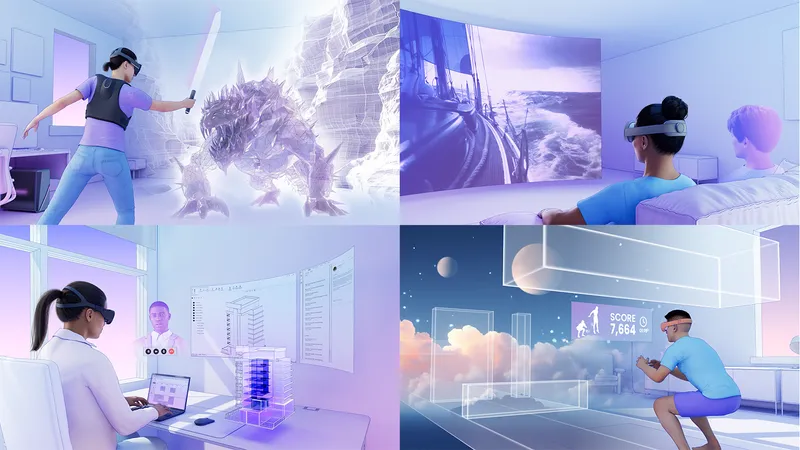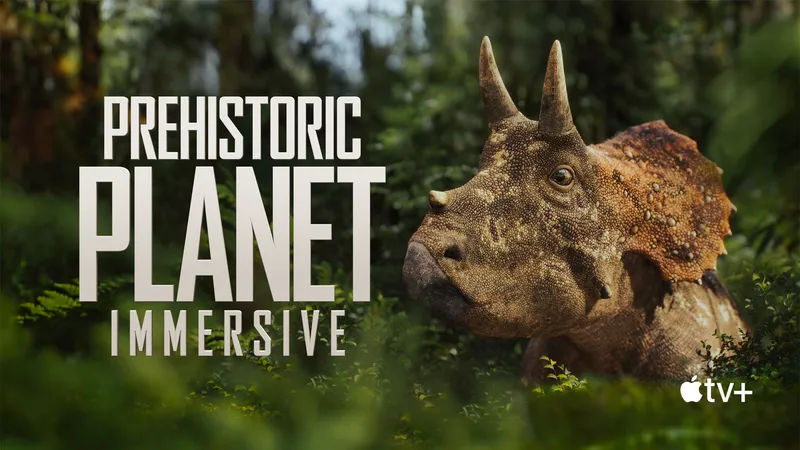When we think of virtual reality, most of us are still thinking fun and games. Immersive visual experiences that can create an incredible sense of wonder, but ultimately are slight indulgences. Developers are still coping with the many other ways VR can impact our lives and create experiences beyond just gaming. In that vein, Notes on Blindness is a brilliant example of just how this technology can expand our senses and awareness of concepts that, for most of us, are completely foreign.
As the name suggests, Notes on Blindness is about being blind. In this case, it’s a collection of audio recordings from John Hull merged into a uniquely visual VR application. John Hull was a writer and theologian who in 1983, after decades of steady deterioration, became completely blind. Hull began documenting his experiences on audio cassettes, as a kind of coping mechanism.
Over three years he recorded over sixteen hours of material. These ‘Notes on Blind’ offer a truly unique perspective on his saga of loss, rebirth, and renewal. Hull describes the world around him, bereft of sight, in beautiful, contemplative language, almost as a scientist would an experiment. Upon publication, Hull’s diaries were described by author and neurologist Oliver Sacks as a masterpiece.
The app is an incredible audio and visual journey, using creatively moderate visuals set to Hull’s original recordings. It’s not simply a passive experience either. Using cues based on Hull’s descriptions of how his perception of the world has changed, the user follows things around the landscape, uses the Gear VR’s touchpad to interact, and focuses their line of sight on specific aspects of the visuals in a given scene.
The look of the game is a gorgeously minimal, but compelling visual representation of how the blind focus on objects and try to decipher what they’re experiencing. Obviously, any visual component isn’t really an accurate portrayal of blindness, but Notes on Blindness does a great job of showing how concentration and reliance on other senses (specifically hearing in this case) can create a compelling landscape.
At times, Hull describes the deep fear of being lost in a world without sensory input. Walking in snow across his lawn, for instance, acts like a sound blanket, causing confusion and anxiety, since his usual auditory tells are silent against the layer of snow. That the app can create a feeling of apprehension in the user at all in such cases is amazing and the overall experience is a profoundly affecting one.
To gain more insight into how Notes on Blindness came about, we asked Arnaud Colinart, Producer at Ex Nihilo and Co-Creative Director of the app, about how it came to be.
“This project started when we met directors and writers Peter Middleton and James Spinney who were looking for partners to co-produce their first feature film in the continuity of their award winning short film (also called Notes On Blindness),” Arnaud explained. “This is how we discovered the incredible story of John Hull. Early in the creative process, Peter and James thought about creating digital content around the film. We started digging with them into John Hull’s diary on C90 tapes.”
It turned out to be an ideal partnership. “The audio material was incredibly powerful and moving,” Arnaud continued. “We started working in collaboration with Amaury La Burthe from Audiogaming, a very talented video game studio with a strong background on interactive audio. At first we worked on the idea of having an interactive podcast. Our first prototype was a 360° audio experience for mobile, using gameplay mechanics to immerse the user into John Hull’s story.”
Unsurprisingly, initial test audiences for the early mobile prototype had issues using an app with no visual stimulation. “Their senses were totally driven by sight” Arnaud said. “Then we shifted to a 360° in a Magic Window version (holding your device in front of you with goggles) with visuals and a few weeks later on a VR version. But audio remains the DNA of the experience, because it was the core of the story.”
Arnaud talked about how they decided on the visual style of the game, doing in-depth research into how the blind perceive the world and the idea that even someone who lacks traditional eyesight still has some visual representation rebuilt by their brain. Aside from the fact that staring at a black screen didn’t test well, a “realistic” approach just didn’t seem relevant to the story they were telling.
“In his diary, John Hull is talking about ‘the acoustic space’, how he is living in what he called a world beyond sight,” Arnaud told us. “These two elements helped us break the code of the visual style of the experience. Every element appearing in the scene would be linked to sound activity. And we decided to work on this idea of glitch, particle, and ghostly images as vanishing memories.”
The design goal was to give the user as few visual elements as possible, to let them focus on the binaural audio, in a way, Arnaud says, “to force their brain to reconstruct the scene.” It works too. The beautiful, minimalism of the scenes in the app creates a stunningly original sense of place when combined with Hull’s narrative. Notes on Blindness feels like something that wouldn’t work nearly as powerfully in any other medium, but VR.
“VR technology has the power to teleport you somewhere or into somebody’s mind. But VR has a catalytic effect on storytelling,” Arnaud mused. “If you don’t have a strong story I’m not sure you will have any deep connection between the user and your VR environment. We hope to show that VR is a strong medium, where creators can unfold meaningful stories in absolute new ways.”
Of all the various VR experiences I’ve seen, Notes on Blindness is one of the few that really felt profoundly personal and wholly experiential. It’s a compelling example of how this technology can enable users to truly become enraptured in something totally foreign in a way that simply isn’t possible in any other medium.
Notes on Blindness is available now on the Gear VR Oculus Store.
—
Jason D’Aprile is a freelance writer with work appearing in prominent publications such as Gamespot, Playboy, and many others.

